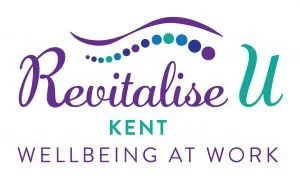
It’s no surprise if you are suffering from stress. Stress is generated from having to deal with unusual circumstances, fear and anxiety and pressure. Living in fear of catching a life-threatening illness, facing an uncertain future, coping with home-schooling, loss of business and financial challenges all qualify as causes of stress. Any one of them would be enough, but many of us are dealing with several, if not all of these.
In fact, it would be strange if you weren’t suffering from stress!
How does stress work?
Stress is how our body copes with a perceived or real threat. The adrenal glands located at the top of your kidneys, release a surge of hormones, including adrenaline and cortisol which then flood through the body.
- Adrenaline increases the heart rate, elevates your blood pressure and boosts energy supplies.
- Cortisol, the primary stress hormone, increases glucose (sugars) in the bloodstream, enhances your brain’s use of glucose and increases the availability of substances that repair tissues. Cortisol also curbs functions that would be non-essential or detrimental in a fight-or-flight situation to try to protect your body as much as possible.
These hormones also communicate with parts of the brain which control your mood, motivation and fear. These are normal reactions to help us cope with stressful situations.
Small amounts of stress can in fact be positive for us, but too much stress, if left untreated can have a detrimental effect on our body and make us ill.
Are you stressed ?
Maybe you don’t think you are stressed, but pause for a few moments and think deeply about how you are feeling. Stress doesn’t always show itself in obvious ways, such as anxiety and depression, but can manifest as:

Stress targets the weakest part of our body or character, so if you are prone to dry skin and eczema, this will flare up when your stress levels increase.
It’s said that 70% of our thoughts are negative – at present this figure will be even higher.
How to deal with stress
Mental Health First Aid England say we all have a ‘stress container’, like a bucket. Your stress container is individual to you influenced by your genetics, life experiences and your beliefs.
If you have a small stress container it will overflow more quickly compared to someone who is less vulnerable to stress.
All the things that cause you stress – finances, family, work and health (the specifics can be large or small and will be different for everyone) are added to the container and the more stress you are under the quicker your bucket fills up. When your bucket overflows your health will be affected.
To help to prevent your stress container overflowing it’s helpful to have some coping strategies such as going for a walk, reading a book, watching a film or talking to someone. These will be individual to you, whatever works best to help you de-stress and relax.
Try not to turn to unhelpful coping strategies such as alcohol, eating too much, or smoking as this can cause the tap to become “rusty” i.e. stresses will be unable to flow out as effectively and your bucket will be at risk of overflowing.
If we turn the tap and release some of the stress inside the bucket, we can cope with more stress being placed in the bucket without it overflowing.
Try our 5 tips to help you manage your stress:
1: Get moving
Exercise helps to generate those ‘feel good’ endorphins. Even a gentle walk is better than nothing.
2: Sit up
Good posture promotes a positive mind and body. If you’re working from home try to set up your workspace to allow you to sit properly and prevent aches and back problems. If you are relaxing in front of the TV try not to slouch.
3: Chill out
Quality rest time means being unplugged from technology. Turn your phone off at least 2 hours before bed and try to reduce your time on social media and technology during the day too.
4: Eat well
Eat less processed food and drink water. Avoid comfort foods and sweet treats and stay hydrated by drinking water regularly throughout the day.
5: Stay in touch
Positive touch helps to switch off stress – reach out to those you live with, it’s amazing how much a hug can help!
And lastly, BREATHE !
Very often, stress results in shallow breathing. This can quickly become a habit. Shallow breathing uses the muscles in your shoulders, neck and chest to expand the lungs. Over use of these muscles can cause neck pain and headaches as well as causing posture to become rounded.
If you breathe from the diaphragm, it can lower blood pressure, reduce your heart rate, relax your muscles and increase your energy levels. A good posture will not only encourage you to breathe better, but will also help you feel more positive and productive! Breathing from the diaphragm can help to alleviate stress!
This is an easy breathing exercise, sometimes called ‘box breathing’:
Take a deep breath in for the count of 4
Hold for the count of 4
Breathe out for a count of 4
Hold for the count of 4 before starting again.
You can do this breathing technique anywhere nobody will notice. If you’re stressed, anxious or overwhelmed why not give it a try? It is especially useful to aid falling asleep.


Laura Kennard owns RevitaliseU-Kent, specialising in wellbeing at work.
You can contact Laura on 07889 940610 or on laura.revitaliseu@gmail.com.



